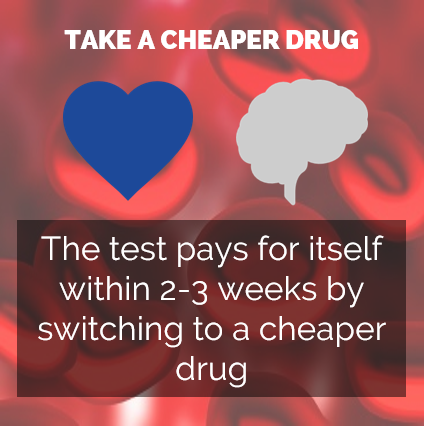What is Personalized Medicine (PM) and how is this new approach enabling better healthcare?
Medical practitioners have always known that patients respond differently to drugs and procedures; one of the simplest examples would be allergies, for instance to peanuts or medicines. Advancements in science have discovered various genetic mechanisms in our bodies causing these differences. PM accounts for these differences in healthcare thereby enabling physicians to individualize therapy to the patient, for faster results at lower expense.
What are the unique elements that made Precision Medicine so exciting?
People used to think that the role of genetics ended with hereditary disease. Today we know that every response our body makes has a genetic fingerprint to it. At Swagene, we were excited by this opportunity to help sick people get better by spending much less time and money using molecular tools. We can now predict response to different therapies and thus avoid trial-and-error medicine which is both costly, time-consuming, and puts an unnecessary drug and hospitalization burden on the patient.
When we hear about personalized medicine we still think it is largely limited to the confines of large academic medical centers in developed world. Do you think it is too early to start thinking about PM in India and emerging markets?
This is very good! Indeed like all sciences, it’s natural that PM also emerged from and is evolving within academic confines. It is this strength of rigorous academic research that yields meaningful, unbiased data that experts can utilize to help people.
Firstly, while there are genetic biomarkers that may be too early or at a clinically mature stage, there should not be such discrimination with regard to countries. It’s like saying electricity and internet can come late enough to “India and emerging markets”. So I’ll focus on the science, which is the only yardstick for clinical primetime for biomarker use.
 There are various genes that are no longer considered to be ‘too early’ to implement, a famous example being the BRCA genes that enable personalized prevention of breast cancer. Swagene places an enormous emphasis on the clinical literature before advancing biomarkers to diagnostic use. For instance, while most labs test for MTHFR mutations as part of thrombophilia, Swagene doesn’t include MTHFR because of too much contradictory evidence, as well as clinical guidelines recommending against testing it. On the other hand, we develop tests for certain biomarkers when we are convinced by the considerable research evidence supporting it.
There are various genes that are no longer considered to be ‘too early’ to implement, a famous example being the BRCA genes that enable personalized prevention of breast cancer. Swagene places an enormous emphasis on the clinical literature before advancing biomarkers to diagnostic use. For instance, while most labs test for MTHFR mutations as part of thrombophilia, Swagene doesn’t include MTHFR because of too much contradictory evidence, as well as clinical guidelines recommending against testing it. On the other hand, we develop tests for certain biomarkers when we are convinced by the considerable research evidence supporting it.
What trends do you see shaping precision medicine?
Big pharma has completely embraced PM because now their clinical trials just give much better results leading to faster drug approvals. The majority of drugs in their pipelines and awaiting approval have pharmacogenetic studies attached to them.
Oncology is being transformed mainly with increasing calls for naming cancer by its molecular signature and decreasing trend to focus on site-of-origin nomenclature. Several other fields of medicine are catching up with this trend, prime among them being fertility treatment and psychiatry.
Is Precision Medicine affordable/relevant for a country like India, or just a fancy idea for the west and the riches?
Again, I think the best market for PM lies in emerging economies, especially India where the ‘value for money’ concept is prized and gels well with PM. Let’s take this example: would you give penicillin to a patient infected with MRSA? No, because not only is it a waste of money, but it’s even counterproductive to their health. It is advantageous to diagnose life-threatening MRSA by molecular assay, which can give results in a couple of hours and thus treat early, rather than by culture which takes a couple of days.
PM is this exact concept adopted to a magnitude more diseases, conditions and therapies. Its aim is to decrease healthcare costs by minimizing emergency room visits, prolonged hospitalizations, and restoring people to health ASAP. The West has adopted it not because they are richer, but because Insurance companies are the payers there and they have realized the cost advantages of using PM. In fact, Swagene is partnering with insurance companies and other healthcare partners in heralding this medical revolution in India.
What are the major challenges you are currently facing, and which additional challenges do you see arising in a few years?
The biggest challenge is building awareness in the medical and patient communities regarding PM. Medical curriculum should focus more on arming physicians with the knowledge of genetics and PM. This is why Swagene works mainly through seminars at hospitals and medical conferences in throwing light on genetics in PM. Swagene is increasingly recognized by various medical communities and invited to present at their meetings.
How do you assess chances of personalized medicine in India in comparison to the USA or EU (developed) markets of this industry?
PM is of benefit to the individual, and therefore doesn’t depend on geography or economic size. The western markets have embraced it quickly because healthcare is more organized there with the payers being the government or insurance companies, thereby translating the benefits of decreased healthcare costs while improving treatment success rates using PM. In countries like India with fragmented healthcare and the patient frequently being the payer, while the benefits remain the same, acknowledging and translating them is more piecemeal.
How do you see precision medicine evolving over the next few years? Will we see a really dramatic transformation in how healthcare is delivered?
Molecular tools to improve treatment efficacy and prevent emergencies will be increasingly available and accepted in medical practice. The internet will further accelerate adoption of PM by empowering patients and doctors who are already demanding more to fight India’s unique challenges with diabetes, heart disease and tobacco use.
